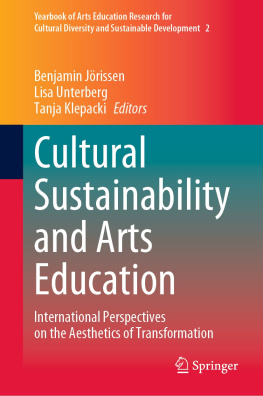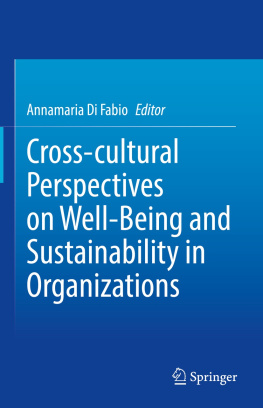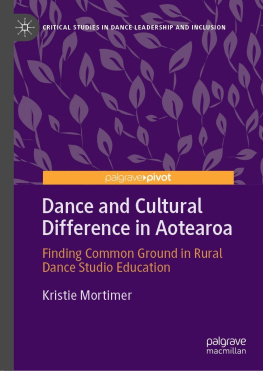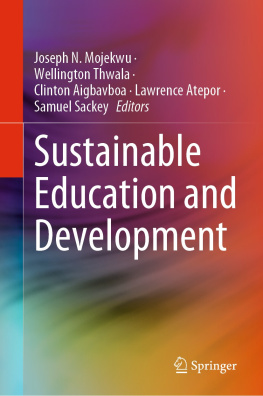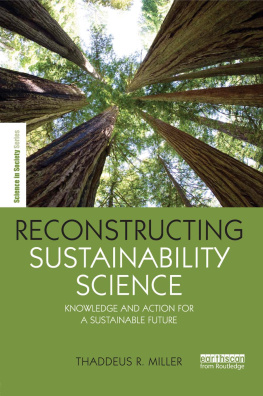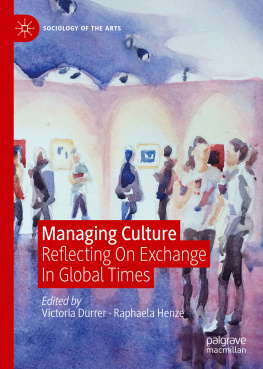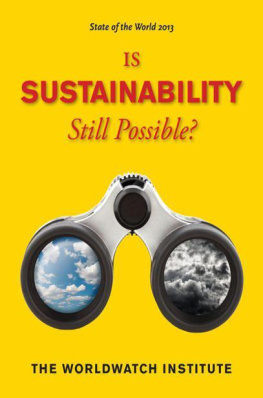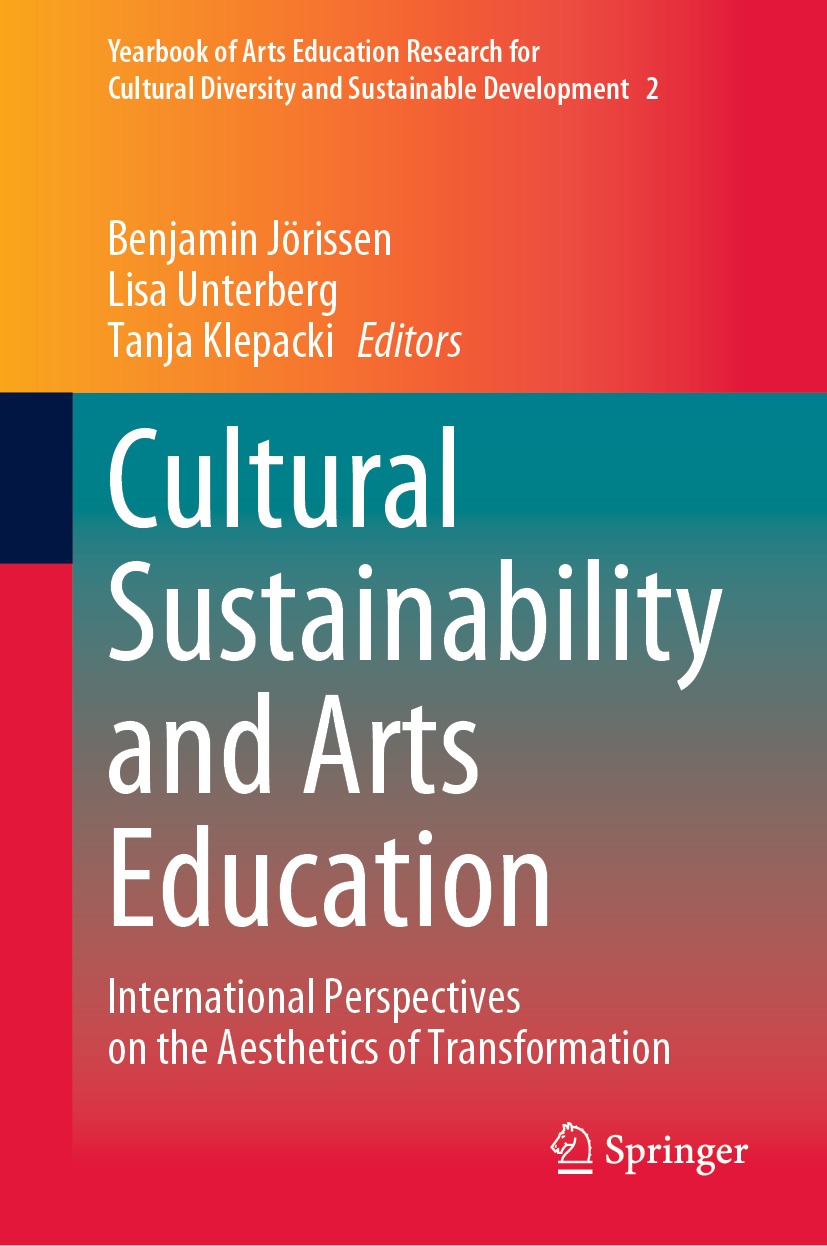Volume 2
Yearbook of Arts Education Research for Cultural Diversity and Sustainable Development
Series Editor
Chee-Hoo Lum
National Institute of Education, Nanyang Technological University, Singapore, Singapore
This proposed yearbook series stems from the research trajectory of the newly formed UNESCO UNITWIN international network for Arts Education Research for Cultural Diversity and Sustainable Development. The UNITWIN is essentially an Arts Education Research Think Tank that hopes to gather and leverage on research from UNITWIN members states (Australia, Canada, Colombia, Germany, Hong Kong, Kazakhstan, Kenya, Korea, Israel, New Zealand, Singapore, Taiwan, Thailand) and beyond.
Sustainable development is defined as development that meets the needs of the present, without compromising the ability of future generations to meet their own needs (World Commission on Environment and Development, 1987). According to Hawkes (2001), sustainable development requires balanced progress in four interdependent dimensions: Social, Economic, Environmental, and Cultural.
UNESCOs proposal to Education for Sustainable development (ESD) includes key development into teaching and learning that includes issues like climate change, disaster risk reduction, biodiversity, poverty reduction, and sustainable consumption. It requires participatory teaching and learning methods that motivate and empower learners to change their behaviours and take action for sustainable development. ESD consequently promotes competencies like critical thinking, imagining future scenarios and making decisions in a collaborative way.
The arts and arts education can be powerful tools in contributing to the work of sustainable development within each of the four (social, economic, environmental and cultural) dimensions. These can include:
a)
Bridging marginalized communities through arts education (Social dimension)
b)
Arts education as means to preserve and develop heritage and cultural diversity (Cultural dimension)
c)
Intercultural and transcultural dialogue through arts education (Cultural dimension)
d)
Building creative and adaptive workforce for the creative industries including creative processes in and through arts education (Economic dimension)
e)
Advocating new/emerging arts and arts education approaches that address environmental concerns (Environmental dimension)
The UNITWIN peer-reviewed edited Yearbook will stem from the annual meeting of the UNESCO UNITWIN network, gathering scholarly views from the UNITWIN member states and invited international expert perspectives on original research and critical commentaries based on the thematic focus for the year.
Projected research themes that will feature in upcoming yearbooks include the arts, arts education and: i) identity; ii) heritage and tradition; iii) transformation and temporality; iv) cultural changes in the digital world; v) peace/community building leading to social transformation; vi) informal/non-formal educational connections; vii) leadership and facilitation; viii) interdisciplinarity in the collaborative and multi-sectorial; ix) creativity; x) education for all; and xi) sustainable environment.
The Yearbook series serves to inform governmental agencies, international arts education organizations, arts educators and researchers, and all interested scholars, students and stakeholders on the immense possibilities of the arts and arts education towards education for sustainable development in and through the arts. Empirical research and exemplary practices in arts and arts education presented through sound theoretical and methodological frames/approaches with policy implications on a national, regional and/or global level that focuses on and cuts across the four key dimensions of sustainable development, namely social, economic, environmental, and cultural, are the key thrust to all contributions to the series.
Editors
Benjamin Jrissen , Lisa Unterberg and Tanja Klepacki
Cultural Sustainability and Arts Education
International Perspectives on the Aesthetics of Transformation
UNITWIN Arts Education Research for Cultural Diversity and Sustainable Development

The Springer logo.
Editors
Benjamin Jrissen
Friedrich-Alexander-Universitt Erlangen-Nrnberg, Erlangen, Germany
Lisa Unterberg
IU University of Applied Sciences, Stuttgart, Germany
Tanja Klepacki
Friedrich-Alexander-Universitt Erlangen-Nrnberg, Erlangen, Germany
ISSN 2524-4388 e-ISSN 2524-4396
Yearbook of Arts Education Research for Cultural Diversity and Sustainable Development
ISBN 978-981-19-3914-3 e-ISBN 978-981-19-3915-0
https://doi.org/10.1007/978-981-19-3915-0
The Editor(s) (if applicable) and The Author(s), under exclusive license to Springer Nature Singapore Pte Ltd. 2023
This work is subject to copyright. All rights are solely and exclusively licensed by the Publisher, whether the whole or part of the material is concerned, specifically the rights of translation, reprinting, reuse of illustrations, recitation, broadcasting, reproduction on microfilms or in any other physical way, and transmission or information storage and retrieval, electronic adaptation, computer software, or by similar or dissimilar methodology now known or hereafter developed.
The use of general descriptive names, registered names, trademarks, service marks, etc. in this publication does not imply, even in the absence of a specific statement, that such names are exempt from the relevant protective laws and regulations and therefore free for general use.
The publisher, the authors, and the editors are safe to assume that the advice and information in this book are believed to be true and accurate at the date of publication. Neither the publisher nor the authors or the editors give a warranty, expressed or implied, with respect to the material contained herein or for any errors or omissions that may have been made. The publisher remains neutral with regard to jurisdictional claims in published maps and institutional affiliations.
This Springer imprint is published by the registered company Springer Nature Singapore Pte Ltd.
The registered company address is: 152 Beach Road, #21-01/04 Gateway East, Singapore 189721, Singapore
Acknowledgments
This yearbook could not have been done without the dedicated contributions of our colleagues from the UNITWIN Network Arts Education Research for Cultural Diversity and Sustainable Development, which continues the global polylogue that started with the International Network for Research in Arts Education (INREA) a decade ago. We also owe a big thank to our team members at the UNESCO Chair in Arts and Culture in Education, Leopold Klepacki and Nathan Moore, who took care of and have been involved in the editing process. On this occasion, we also like to thank our students from the Masters Degree Study Course Aesthetic and Cultural Education at the Friedrich-Alexander-Universitt Erlangen-Nrnberg, who most helpfully contributed to the organization of our conference, and one of whom, we are proud to say, produced his first publication in this international volume.

